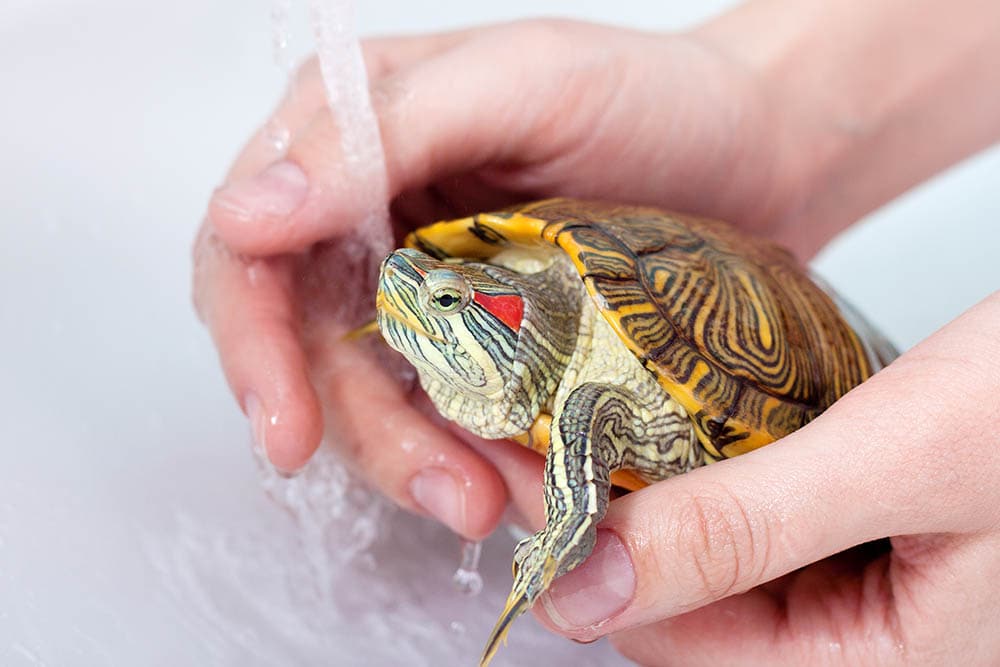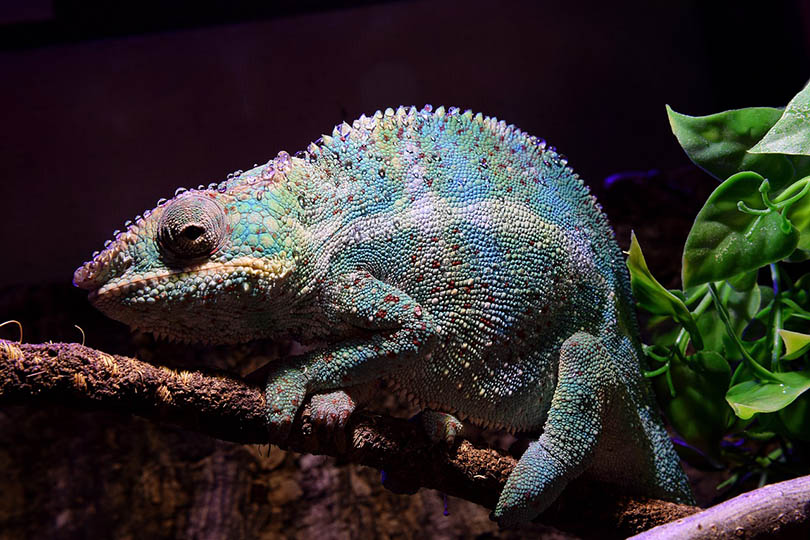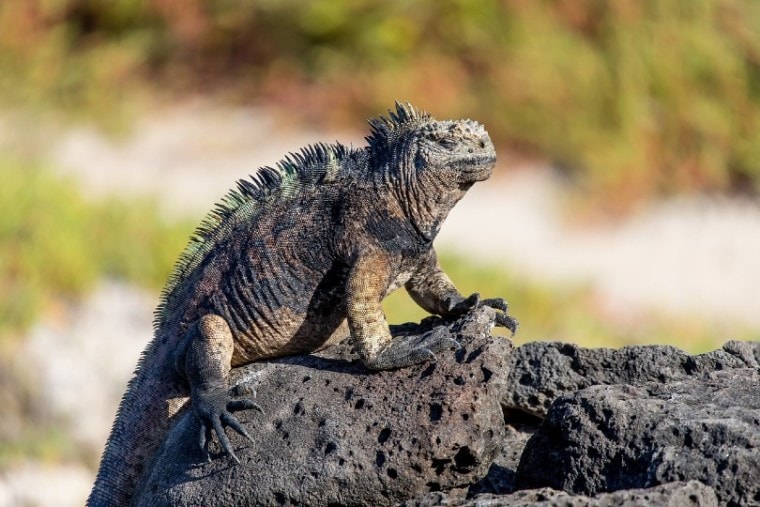
Iguanas are among the most docile and biggest lizards that people keep as pets. Unlike snakes, lizards aren’t known for their venomous natures. While there are a few lizard species that are dangerous to humans, iguanas aren’t one of them. Although they can have venom, the danger presented by them is mostly via their claws and serrated teeth.
Among the lengthy list of venomous lizards, iguanas are the safest. They do have venom glands and the capability to inject their victims when they bite, but the venom is mild and nearly harmless. While the venom can cause respiratory failure, it’s a rare reaction, especially in humans.
Are Iguanas Dangerous?
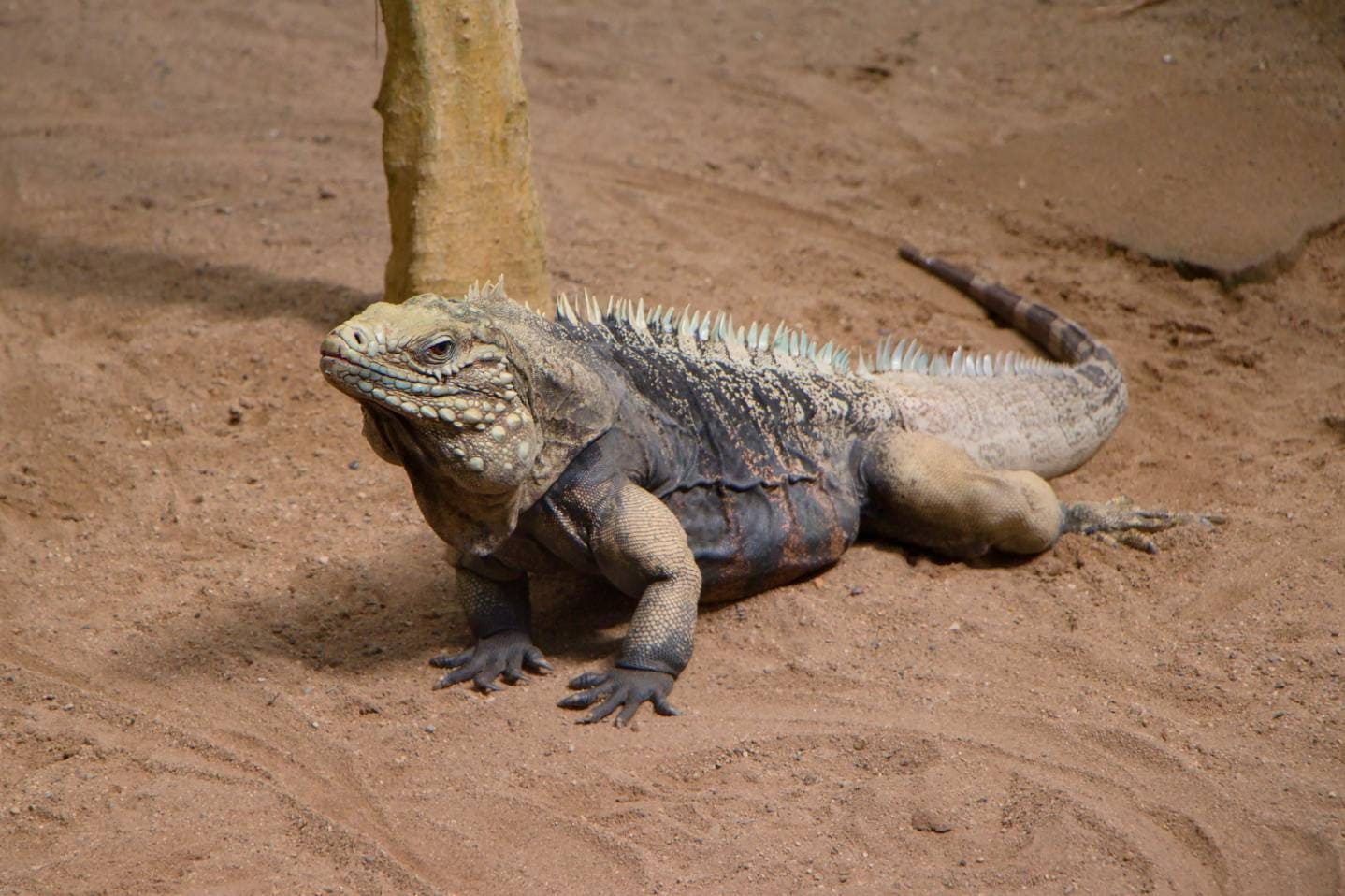
Given the respect and care that they deserve, iguanas are no more dangerous than an affectionate puppy. However, they do have the means to defend themselves and are not afraid to do so when they feel threatened. Both their teeth and claws can cause serious injuries.
Iguanas, especially the common Green Iguana, are among the biggest lizards that humans can keep as pets. That said, they’re still small, and as a result, their reach for bites and scratching is limited mostly to ankles, arms, wrists, hands, and faces. That’s not to say that these injuries are superficial, though.
Unlike smaller lizards, like the gecko, iguanas have a much stronger bite, along with 120 serrated teeth. It’s no surprise that a human would require stitches after being bitten. Don’t forget the iguana’s claws and tail either. Their claws are sharp enough to break skin, and they can use their tails to fend off would-be attackers.
In the end, iguanas aren’t inherently dangerous and lean more toward flight when threatened. They’re naturally solitary and affectionate creatures. However, if they are pushed too far, like other animals, they will fight back if they think that they need to.
The 4 Signs an Iguana Is About to Bite
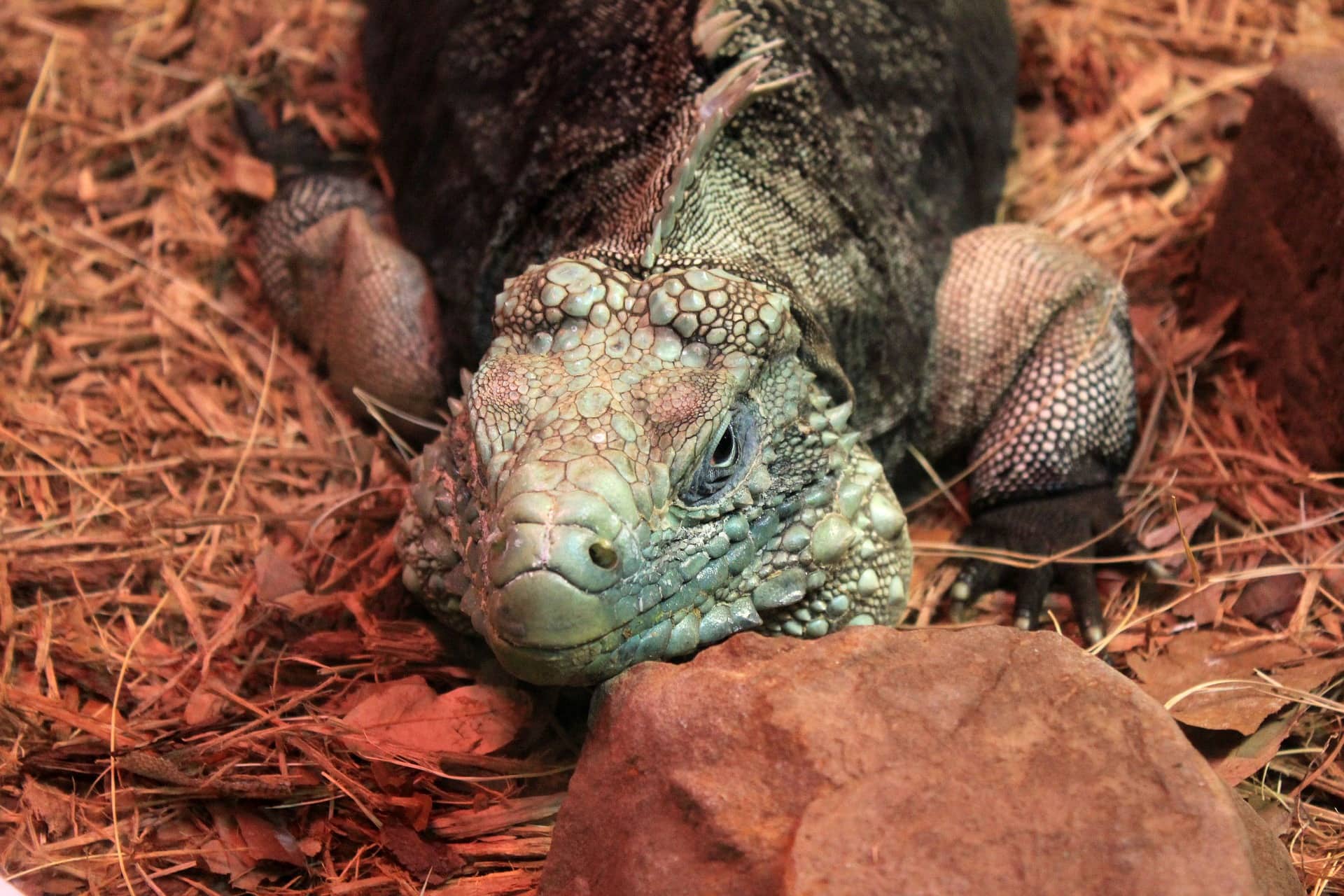
There are cases of iguanas attacking without warning, but these are few and far between. More often than not, iguanas will bite as a last resort and use their body to announce their intentions and warn off you or their attacker.
Fortunately, the warnings are obvious ones.
1. Bigger Is Better
When it comes to instincts, animals react to things in similar ways. Under duress, they all know how to make themselves appear more threatening than they are. Iguanas are no different. If they’re about to fight back, they’ll lift themselves onto all fours and inhale to puff themselves up to appear larger.
2. Head Bobbing
Agitated movements are sure signs of anyone losing their temper. Iguanas will bob their head when they feel threatened, a repetitive movement that can either be slow or fast. Either way, it’s probably a good idea to leave them alone for a while.
3. Hissing
Lizards hiss to vocalize their displeasure. Knowing that they come equipped with fast reflexes and claws, you should back off when your iguana makes a point of expressing their discontent by hissing.
4. Lowered Dewlap
An iguana has a flap of skin under their chin called the “dewlap.” When they feel threatened, this flap of skin will lower in warning.
What to Do When Bitten by an Iguana

Designed primarily for tearing through plant matter, iguana teeth are serrated. The strength of their jaws and their tendency to tear rather than bite down can lead to nasty wounds, particularly on unsuspecting fingers. While the injected venom is relatively harmless due to its weak nature, an iguana’s saliva can carry salmonella and can lead to some severe infections if not properly treated.
If you are bitten by your iguana, make sure to thoroughly wash the wound with hot, soapy water. Due to the serrated nature of iguana teeth, most bites will require stitches. Seeking medical attention is essential. The faster you properly treat the injury, the less likely that there will be an infection.
Remember to keep the wound clean while it heals to negate infection and aid healing.
The 3 Reasons for Aggression in Iguanas

Naturally amiable, it’s rare for iguanas to show signs of aggression, but even these friendly giants can have off days. There are several reasons that your iguana may be happy to spend time with you one day but hiss at you the next.
1. Territorial
In the wild, iguanas are solitary creatures. As they don’t require much companionship, though the company of other iguanas is appreciated, they can be quite territorial, some more so than others.
If your iguana is possessive of their favorite spot and enjoys their solitude, they might not appreciate being pestered.
2. Hormones
This is the biggest reason that your iguana’s mood changes from one day to another. After all, hormones bother humans just as much, and sometimes even the smallest thing can set us off. For our usually friendly iguanas, hormones are no less irritating.
A hormone imbalance may also be caused by being out of breeding season. Both males and females have specific times when they breed, and outside of these times, they may seem out of sorts or hormonal.
3. Male
Male iguanas, particularly the larger ones, tend to be more aggressive than females. In an attempt to show their dominance, they may act more aggressively.
Are Iguanas Dangerous to Other Pets?
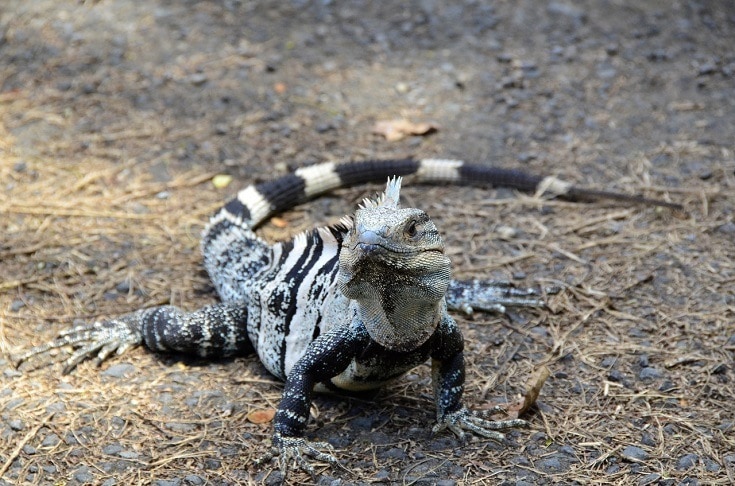
Most of the time, the danger posed in a multi-pet home with an iguana is from other household pets. Both dogs and cats have been known to maul lizards, including smaller ones, to death.
Depending on the size of your iguana, they’ll get along with other pets in varying degrees. While none of the species particularly likes dogs, larger breeds have been known to get along with cats, particularly if they’re large enough to teach said feline to back off when needed.
Despite their ability to get along with other pets, slight as it is, it’s a good idea to keep iguanas away from them, especially your dog. Iguanas have been linked to botulism poisoning in dogs, a serious and fatal condition.
The playfulness of your overly affectionate hound or the steady stare of your hunting cat can also cause undue stress for your pet iguana. To be on the safe side, keep your terrarium sealed and away from inquisitive eyes.
Conclusion
Docile and friendly, iguanas are quiet companions to keep around the house. While their sharp claws and serrated teeth can cause the most damage when they feel threatened, they’re also mildly venomous. Unlike other venomous lizards, however, the iguana species is the least dangerous to humans. The venom at their disposal is weak and for humans, relatively harmless.
Learning how to care for your iguana and showing them the proper respect will make sure you both live in harmony with each other. By listening to the warning signs that your iguana shows when they feel threatened, you’ll avoid being bitten by your companion.
Featured Image Credit: Geschenkpanda, Pixabay


